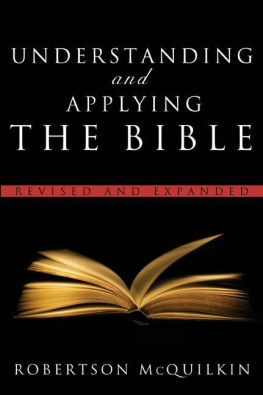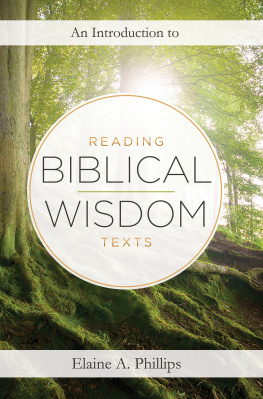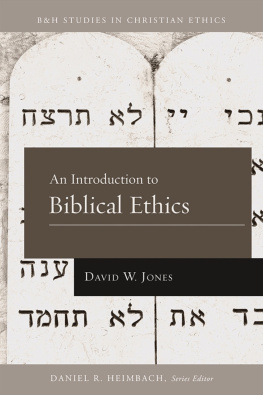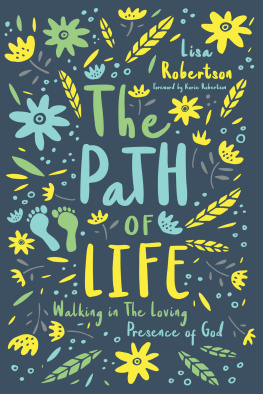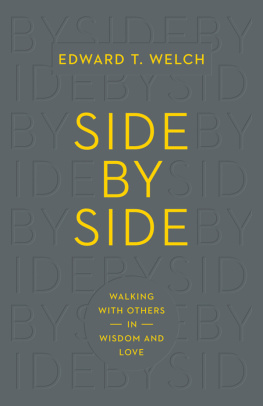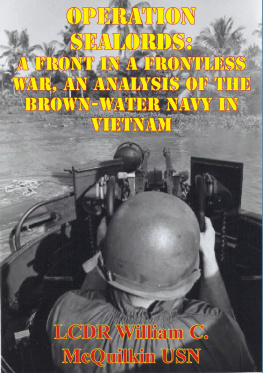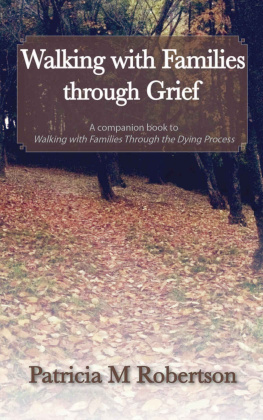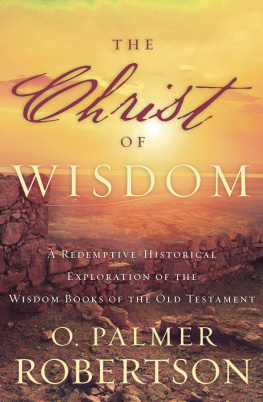Robertson McQuilkin - An Introduction to Biblical Ethics: Walking in the Way of Wisdom
Here you can read online Robertson McQuilkin - An Introduction to Biblical Ethics: Walking in the Way of Wisdom full text of the book (entire story) in english for free. Download pdf and epub, get meaning, cover and reviews about this ebook. year: 2014, publisher: InterVarsity Press / IVP Academic, genre: Religion. Description of the work, (preface) as well as reviews are available. Best literature library LitArk.com created for fans of good reading and offers a wide selection of genres:
Romance novel
Science fiction
Adventure
Detective
Science
History
Home and family
Prose
Art
Politics
Computer
Non-fiction
Religion
Business
Children
Humor
Choose a favorite category and find really read worthwhile books. Enjoy immersion in the world of imagination, feel the emotions of the characters or learn something new for yourself, make an fascinating discovery.

- Book:An Introduction to Biblical Ethics: Walking in the Way of Wisdom
- Author:
- Publisher:InterVarsity Press / IVP Academic
- Genre:
- Year:2014
- Rating:4 / 5
- Favourites:Add to favourites
- Your mark:
- 80
- 1
- 2
- 3
- 4
- 5
An Introduction to Biblical Ethics: Walking in the Way of Wisdom: summary, description and annotation
We offer to read an annotation, description, summary or preface (depends on what the author of the book "An Introduction to Biblical Ethics: Walking in the Way of Wisdom" wrote himself). If you haven't found the necessary information about the book — write in the comments, we will try to find it.
An Introduction to Biblical Ethics: Walking in the Way of Wisdom — read online for free the complete book (whole text) full work
Below is the text of the book, divided by pages. System saving the place of the last page read, allows you to conveniently read the book "An Introduction to Biblical Ethics: Walking in the Way of Wisdom" online for free, without having to search again every time where you left off. Put a bookmark, and you can go to the page where you finished reading at any time.
Font size:
Interval:
Bookmark:
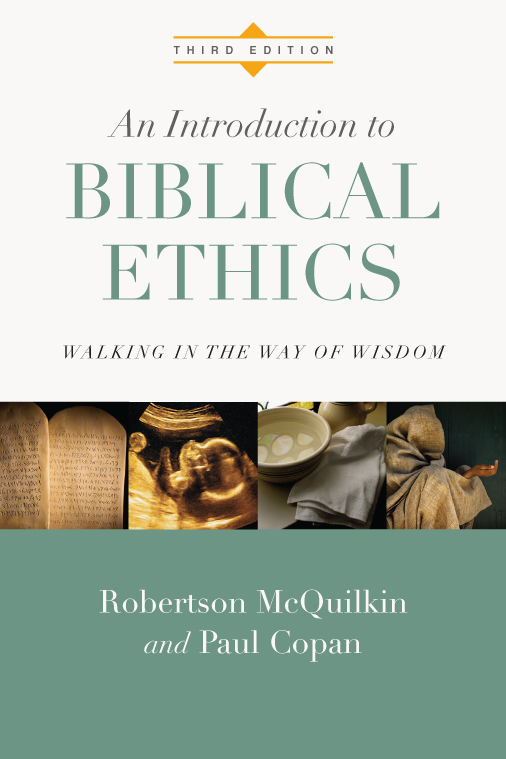
InterVarsity Press
P.O. Box 1400,
Downers Grove, IL 60515-1426
World Wide Web: www.ivpress.com
Email:
Third edition: 2014 by Robertson McQuilkin and Paul Copan Second edition: 1995 by Robertson McQuilkin First edition: 1984 by Robertson McQuilkin
All rights reserved. No part of this book may be reproduced in any form without written permission from InterVarsity Press.
First and second editions published by Tyndale House Publishers, Inc., Wheaton, Illinois, USA.
InterVarsity Press is the book-publishing division of InterVarsity Christian Fellowship/USA , a movement of students and faculty active on campus at hundreds of universities, colleges and schools of nursing in the United States of America, and a member movement of the International Fellowship of Evangelical Students. For information about local and regional activities, write Public Relations Dept., InterVarsity Christian Fellowship/USA, 6400 Schroeder Rd., P.O. Box 7895, Madison, WI 53707-7895, or visit the IVCF website at www.intervarsity.org .
Unless otherwise indicated, Scripture quotations are taken from the New American Standard Bible, copyright 1960, 1962, 1963, 1968, 1971, 1972, 1973, 1975, 1977, 1995 by The Lockman Foundation. Used by permission.
Scripture quotations marked NIV are taken from THE HOLY BIBLE, NEW INTERNATIONAL VERSION, NIV Copyright 1973, 1978, 1984, 2011 by Biblica, Inc. Used by permission. All rights reserved worldwide.
While all stories in this book are true, some names and identifying information in this book have been changed to protect the privacy of the individuals involved.
Cover design: Cindy Kiple
Images:
Homeless person: Tobias Helbig/Getty Images
Towel and basin: Sterlsev/iStockphoto
Fetus ultrasound: PEDRE/iStockphoto
Ten Commandments: jsp/iStockphoto
ISBN 978-0-8308-6481-2 (digital)
ISBN 978-0-8308-2818-0 (print)
Dedication (from Paul Copan)
To my loving wife, Jacqueline,
whose gentle and wise spirit radiates
the glory and presence of God
and is a daily encouragement and inspiration
to me and our children.
BOOK ONE:
Foundational Considerations
BOOK TWO:
Applying the Bible to Life
Columbia International University president emeritus, Robertson McQuilkin, wrote An Introduction to Biblical Ethics, which was first published by Tyndale in 1989. This book has had a good run over the course of two editions, and it has been translated into a number of languages, including Korean, German and Amharic. Twenty-eight years ago, I (Paul) had read this non-published manuscript by McQuilkin as a textbook in his class at what is now Columbia International University. This book made a remarkable impact on me and helped guide my thinking on many ethical questions.
Roberston McQuilkin and I stayed in contact over the years, writing to each other and visiting with one another from time to time. In June 2009, Mr. McQuilkin (as I still call him), wrote an email to me, requesting my advice. Hoping to extend the life of the book, he asked about a possible coauthor to revise the book with him. In his note, he said that his objective in conceiving and writing this ethics book was not merely that it be true to Scripture; he wanted to actually start with Scripture to deal with ethical issues in the Bible itself as well as with contemporary ethical issues in light of Scripture, structuring his work around the Ten Commandments. However, he was skeptical that he could find an ethicist willing to revise the book with him and whom he could fully endorse.
So I wrote back to him, informing him that his book had been a marvelous resource to me over the years. I mentioned that I taught ethics, of which he was unaware. In somewhat parallel fashion, I myself had written a philosophy of religion book, Loving Wisdom: Christian Philosophy of Religion (Chalice), which had the identical goal: to begin with and extensively engage the Scriptures to articulate and defend philosophically the coherence of the Christian metanarrative (God, creation, fall, redemption, re-creation). Having the same vision as he, I expressed a willingness to go in with him on this project.
He immediately replied: if you do ethics, too, I can think of no one Id rather bequeath this project to! I think the book has had a unique niche and, from what you say, still could. Maybe my query to you was a God-thing!
This book has required updating and expansion in places. We have added material on topics ranging from utilitarianism and evolutionary ethics to gay marriage to bioethical issues such as plastic surgery, transsexualism and surrogate motherhood. Obviously, this book is an expression of agreement between the authors regarding much material on biblical ethics. A few differences remain, as will be evident, but it has been a joy to engage in discussion. In various portions of the book, you will see McQuilkins Perspective and Copans Perspective headings. We consider this feature of the book to be a virtue: it shows a range of acceptable views within evangelicalism and that people who disagree at secondary points can still work together beneficially and amicably.
We would like to thank Jacqueline Copan, Peter Payne, Michael Austin, Cristian Mihut and Francis Beckwith for their valuable insights. We are also indebted to our friends at InterVarsity Press: Jeff Crosby for his friendship over the years and his enthusiastic support for this and other IVP writing endeavors; Andy LePeau for his friendship, graciousness and wise guidance about this project; and Kristie Berglund for her superb editing skills. We are very grateful for all you have done to bring this book to a third edition. Thanks also to CIUs Roy King for putting together the Instructors Guide to accompany this volume, aiding professors or teachers who use this book as a text in their classroom.
It is a high privilege to team up with my former professor and mentor in this book endeavor. Both of us pray that God will use this book to guide Christians in living wisely, helping to give clearer shape to loving God and loving others before a watching world. It is also our hope that, through this book, believers in a relativistic, cynical age will not only be better able to winsomely and courageously articulate the joy and blessing of the Scriptures life-giving demands and of conformity to the image of Christ. We pray too that they will demonstrate through their lives the wisdom, goodness and beauty of walking in the ways of the Lord.
Paul Copan
Robertson McQuilkin
August 2013
Ethics (from the Greek word ethos ) might be called a system of moral values, virtues and duties. It has to do with ideal human character, actions and ends. What ought a person do or refrain from doing? What attitudes, behavior and qualities should be viewed as good? And why should they be considered good? What is the highest good, the chief end of man, the purpose of human existence? These are the questions the study of ethics seeks to answer.
Since the time of the Enlightenment (16501800), however, ethics has been separated from theology in an effort to separate the sacred and the secular, and now we find ourselves in the midst of a crisis about the foundation of ethics. Weve all heard atheists claiming that we can be good without God, that we dont need the Bible to know right from wrong, that we should be good for goodness sake. True, non-believers can both know and do good things, even though alienated from God. But this hardly begins to address the crisis, let alone show how goodness could emerge in a Godless world. The ultimate answer to this moral crisis is the existence of a good, personal God, in whose image humans have been made and who serves as the basis for objective ethics, duties, human rights and personal dignity; and this God has most clearly revealed his very character and will in the person and ministry as well as the death and resurrection of Jesus of Nazareth. Attempting to remove God from the picture of reality in an effort to formulate secular ethical systems has helped create the crisis in the first place. We will return to this point.
Font size:
Interval:
Bookmark:
Similar books «An Introduction to Biblical Ethics: Walking in the Way of Wisdom»
Look at similar books to An Introduction to Biblical Ethics: Walking in the Way of Wisdom. We have selected literature similar in name and meaning in the hope of providing readers with more options to find new, interesting, not yet read works.
Discussion, reviews of the book An Introduction to Biblical Ethics: Walking in the Way of Wisdom and just readers' own opinions. Leave your comments, write what you think about the work, its meaning or the main characters. Specify what exactly you liked and what you didn't like, and why you think so.

